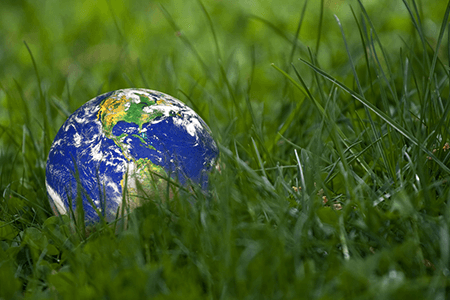WASHINGTON, DC (May 23, 2023) — In partnership with the Global Partners for Plastics Circularity (GPPC), Financial Times Live (FT) held a two-hour live, virtual event titled “Strategies Towards Reaching Zero Plastic Pollution.”
Featuring an extensive slate of experts and moderated by FT Commissioning Editor Neville Hawcock, the event examined many of the proposed solutions for eliminating plastic pollution in advance of the United Nations second intergovernmental negotiating committee (INC-2), which is developing a legally binding global agreement on plastic pollution.
Discussions featured thought leaders from multiple sectors engaged in eliminating plastic pollution, including NGO, plastics value chain, finance and government. Watch all the sessions in their entirety free on-demand.
Here are some of the most poignant quotes, slightly edited for length and clarity, from each speaker:
At the end of day, people will need cars, they will need buildings, they will need to preserve food. So what we need to compare is what are the alternatives to plastic to fulfill the same applications that use plastic today?
The plastics pollution challenge requires a more holistic approach than that which we have taken to date. It requires us to look at a balanced set of solutions, to advance technologies, to advance lower costs, more efficient, low carbon emitting solutions…it requires us to look at how we reduce the format and use of plastic materials through design for recycling. We have to look at new business models and closed loop solutions to manage the plastic through the value chain, as well as enabling infrastructure and having the right policy and regulations to help drive circularity in different geographies and locations around the world.
I think one of the key things is that there’s no one solution that fits all. I think the main split is between countries that have very good collection and processing systems with those that may not already have that.
If you think about small island states… they don’t have enough product or feedstock for recycling systems and some of them have large takeout cultures. If there’s not infrastructure to manage those materials, solutions should match what that community can serve. So that’s when really great reuse systems can be put into place to manage that.
Countries have different starting points in terms of their infrastructure for waste management but also the policies that support waste management infrastructure… The global agreement to end plastic pollution needs to be that catalyst. It needs to recognize where countries are in their journey and that it equips them with different tools, like strategy toolkit for policies, capacity building and financing to help sustain a system once you begin to build it.
We need to foster a culture of innovation and risk taking to promote those investments needed, including with the private sector, to advance the circular economy across all the stages of the cycle.
The key message, within the context of the treaty, is not to only limit the end of life for plastics to mechanical recycling. We have to open up for other potential solutions and that might include chemical recycling.
80% of the leakage of plastic into the ocean and the waterways can be prevented by only applying existing technologies, existing management systems, and also supporting policies... However, a big part of that and why it’s not happening is because of lack of capital.
Go to plasticscircularity.org to learn more about GPPC, our ambition to tackle plastic pollution, and how a global agreement can accelerate progress.



